Last updated on May 16, 2023
Bringing 10,000 hours of personal, professional, coaching, and therapeutic development in both 1:1 and group settings to his practice, Constantine Dhonau blends modern and ancient philosophies to guide clients toward personal growth and transformation. Constantine shared with us the evolution of his coaching journey and how his learnings from his diverse background influence his work. We hope you enjoy getting to know Constantine through this insightful interview.
Coaching Focus: Combining Positive Intelligence™, relationship coaching, and wilderness therapy experience to guide individuals and couples through personal growth and transformation, Constantine Dhonau empowers clients to create meaningful change, enhancing their relationships and overall well-being.
Location: Durango, Colorado, USA
Connect: You can find Constantine online at his website as well as on Instagram and Facebook.
Tell us about your journey as a coach.
I began my journey of personal, professional, and spiritual development over a decade ago. Influenced by my multicultural experiences and education in research psychology, I discovered a passion for helping others grow and transform.
I started my coaching career in 2021 after working in various positions that involved mentorship and personal development, such as serving with AmeriCorps, training with Outward Bound, and guiding wilderness therapy expeditions. My time in the wilderness, guiding and supporting individuals in crisis, provided me with valuable therapeutic skills that I now integrate into my coaching practice.
My coaching approach is influenced by a blend of Positive Intelligence™, self-compassion, the I Ching, and the Dao De Jing. I began attracting my first clients through word of mouth, referrals from my previous wilderness therapy work, and by offering free consultations. As my coaching practice evolved, I expanded my services to cater to the unique needs of individuals and couples seeking guidance and support in their personal and relational growth.

Today, my coaching practice thrives by providing tailored coaching cycles and deep dive programs that emphasize cultivating emotional intelligence, effective communication, and personal transformation. As a dedicated lifelong learner, I continue to deepen my understanding and expertise by actively pursuing continued education and personal growth. My mission as a coach is to empower clients to achieve their goals and realize their full potential.
What courses, programs, or certifications have you done? Would you recommend them, and for whom?
I have completed various courses, programs, and certifications throughout my journey as a coach. These include:
- Research Psychology degree at New College of Florida: This laid the foundation for my understanding of human behavior, cognition, and emotions. I would recommend pursuing a degree in psychology for those interested in building a strong foundation for understanding human behavior and development.
- AmeriCorps Gap Year: Participating in this volunteer-based service program enabled me to develop leadership and teamwork skills while serving communities in need. I would recommend AmeriCorps for individuals looking to make a difference and gain valuable life experience.
- Outward Bound Instructor Development Course: This intensive course allowed me to acquire outdoor education, leadership, and group facilitation skills. It’s an excellent program for those interested in working in outdoor education or wilderness therapy.
- Open Sky Wilderness Therapy Guide: As a field guide, I gained extensive therapeutic and wilderness skills while working with individuals in crisis. I would recommend pursuing a wilderness therapy guide position for those passionate about helping others in a unique and challenging environment.
- Transformation Academy: This was a great introductory certification for coaching. While they are not (yet) accredited by the ICF, they do a good job of providing content that aligns with the ethics, values, and methodologies preferred by the ICF.
- Positive Intelligence™ Coaching Certification: This program focuses on building mental fitness and emotional intelligence. I highly recommend it for coaches seeking to incorporate cutting-edge neuroscience and mindfulness techniques into their practice.
I believe that the value of each program or certification varies depending on an individual’s interests and career aspirations. It is essential to research and identify programs that align with your personal and professional goals to create a fulfilling and impactful coaching journey.
What advice or perspective might you give to a new coach trying to get their first clients? Any advice they should ignore?
- Focus on your niche: Identify your coaching specialty and target audience. This will help you market your services more effectively and attract clients who resonate with your expertise.
- Build your online presence: Create a professional website and social media profiles showcasing your coaching services, testimonials, and valuable content. Engage with your target audience through blog posts, webinars, and informative social media updates.
- Network: Connect with other coaches, industry professionals, and potential clients through networking events, workshops, and online forums. Building relationships and fostering referrals can be an effective way to gain clients.
- Offer free sessions: Offer a limited number of free coaching sessions to build credibility and gain testimonials. These can be valuable in attracting paying clients.
- Invest in professional development: Continue to learn and grow in your field by participating in workshops, conferences, and courses. This will not only improve your coaching skills but also help you establish yourself as an expert in your niche.
- Be patient and persistent: Building a successful coaching practice takes time and effort. Stay dedicated to your goals, consistently put in the work, and be willing to adapt and learn from your experiences.
As for advice to ignore:
- Don’t feel pressured to use every marketing strategy or tool available. Focus on the methods that resonate with you and are most effective for your target audience.
- Avoid the belief that you must have a large client base to be successful. Focus on quality over quantity and strive to create deep, lasting impacts on your clients’ lives.
- Don’t get discouraged by initial challenges or slow progress. Building a coaching practice is a journey that requires patience, determination, and resilience. Embrace the learning process and stay committed to your vision.
What are your thoughts on “choosing a niche” as a coach?
“I want to/am able to help everyone” is a classic starting block for coaches—and you’re probably right. But there is a paradox here. The more specific you get, the more someone feels like you’re speaking to them directly as if you knew them personally before meeting them, the more likely they are to sign up to work with you.
The big thing to remember is to specialize, specialize, specialize—and other people will ask if you also do this, that, and the other—and you can say yes to that 🙂
Start with your friend group. This is a great window into the people you gravitate towards, build relationships with, work well with, communicate easily with, and likely share openly with or they share openly with you.
Who are they? What are their qualities?
- What do they wear?
- What music do they listen to?
- What are their hobbies?
- What are their beliefs?
- What is their background?
- What are they consistently struggling with?
- What do they value most in life?
The more specific you get, the more someone feels like you’re speaking to them directly as if you knew them personally before meeting them, the more likely they are to sign up to work with you.
The more specific you can get, the better. This is called “building your avatar.” It is not the end-all-be-all, but provides a tremendous amount of direction.
What books have significantly influenced your life? What are your key takeaways from these books?
Autobiography of a Yogi by Paramahansa Yogananda – This book opened my eyes to the power of spirituality and the potential for personal transformation through self-realization. Yogananda’s journey inspired me to explore my own spiritual path and to integrate spiritual principles into my coaching practice. Key takeaways include the importance of meditation, self-discipline, and the interconnectedness of all life.
Dao De Jing by Lao Tzu – The Dao De Jing has been a profound source of wisdom in my life, teaching me the principles of balance, simplicity, and harmony. Its teachings have helped me develop a more grounded and mindful approach to life and coaching. Key takeaways include the concept of “Wu Wei” or effortless action, the importance of being present, and the power of humility.
I Ching (The Book of Changes) – The I Ching has guided me through personal and professional challenges, offering valuable insights into the nature of change and the interconnectedness of life’s events. As a coach, I’ve incorporated the wisdom of the I Ching into my practice, helping clients navigate change and uncertainty with grace and resilience. Key takeaways include embracing change as a natural part of life, seeking harmony through balance, and the importance of reflection and introspection.
Death: The Final Stage of Growth by Elisabeth Kübler-Ross – This book deeply influenced my perspective on life, death, and the human experience. Kübler-Ross’s exploration of death and dying helped me to appreciate the value of each moment and the transformative power of loss and grief. As a coach, I’ve integrated these insights into my work, supporting clients through life transitions and helping them find meaning and growth in challenging experiences. Key takeaways include understanding the stages of grief, the importance of acceptance, and the potential for growth and transformation in the face of adversity.
What tools, software, or other resources have you found to be most helpful in running your coaching business?
- Wix is an excellent website builder that allows me to create and maintain a professional online presence for my coaching business. It’s user-friendly and offers a variety of templates and customization options.
- Calendly is a fantastic scheduling tool that simplifies the process of booking appointments with clients. It integrates seamlessly with my Google Calendar and saves time by eliminating back-and-forth emails.
- Google Calendar helps me stay organized and manage my time effectively. It syncs across devices, making it easy to keep track of client appointments, personal commitments, and business tasks.
- Instagram has been a valuable platform for connecting with potential clients and sharing valuable content related to coaching, personal development, and wellness.
- Facebook has also been an essential tool for networking, building relationships with other professionals, and sharing valuable content to grow my audience and engage with clients.
- I rely on Google Sheets to manage various aspects of my business, such as tracking client progress, finances, and marketing efforts. They help me stay organized and easily access important information.
- Continued learning courses: Investing in additional courses and professional development has been crucial in enhancing my coaching skills and staying current in the field. Platforms like Udemy, Coursera, and Teachable offer a variety of courses to suit different interests and needs.
- YouTube is a fantastic resource for inspiration, learning, and expanding my coaching knowledge. It offers countless videos on personal development, coaching techniques, and business management, which have been instrumental in growing my business.
If you received an extra $10,000 to spend on your business, how would you spend it and why?
1,000% one or two hours of business consulting, legal consulting, and done-for-you digital marketing services!
Business consulting: Paying for just a few hours of professional feedback on how to make my offerings as enticing as possible to bring in more clients so I can do what I do best!
Legal Counsel: Again, just a few hours to go over federal, state, and local statutes after reviewing my services to make sure I’m maintaining everything up to snuff.
Done-for-you Digital Marketing: This can easily be one of the biggest up-front investments that takes time to build and pay off…but to have a team consistently working to extend my reach so it’s off my plate? Ab-so-lutely.
What are some of your favorite affirmations, mantras, or thoughts currently?
“Where your focus goes, your energy flows.” – Disclosure (House music artist)
“The meaning of life is to give life meaning.”
“Turn your unconscious monologue into a conscious dialogue.”
“If today was your last day, is there anything keeping you from going in peace?”
Overall, I’ve learned that my greatest pleasure in life is witnessing people rise to their potential. It’s an incredible bonus and honor to be able to play a part in that.
When you feel overwhelmed, stressed, or have lost your focus or motivation, what do you do?
When I feel overwhelmed, stressed, or have lost my focus or motivation, I rely on a combination of routines, practices, and coping strategies to help me regain balance and clarity. Some of these include:
- Drinking water: Staying hydrated is essential for overall well-being, and taking a moment to drink water can help me recenter and refocus.
- Breathing into my stomach: Deep, diaphragmatic breathing can help me calm down, release tension, and regain focus.
- Going for a walk: Physical activity, particularly outdoors, can help alleviate stress, clear my mind, and restore my energy levels.
- Journaling: For 13 years, I maintained a journal to process my thoughts and emotions. Though I’ve recently stopped because I feel that I’ve done plenty of reflecting into deeper self-awareness and it’s time for me to practice letting go of my thoughts, it did serve as a critical outlet during times of stress.
- Writing a letter and burning it: When the stress becomes particularly intense, writing a letter to release my emotions and then burning it helps me let go and move on.
- Phoning a friend: Reaching out to a trusted friend for support or perspective can help me regain motivation and focus.
- Practicing gratitude: Expressing gratitude each time I eat something reminds me to appreciate the small blessings in life.
- Reciting affirmations: Repeating affirmations as I go to sleep helps me cultivate a positive mindset and reinforce my beliefs.
- Talking to myself out loud: Verbalizing my thoughts and feelings allows me to process emotions and gain new insights.
- Seeking professional help: Acknowledging my need for support, I started taking antidepressants this year for the first time, which has been incredibly helpful in managing stress and moving forward.
- Spending time alone in nature: Connecting with the natural world offers a chance to reset, recharge, and gain a fresh perspective on challenges.
Do you have any examples of how a “failure” set you up for later success?
While the experience of starting a catering business with a friend seemed like a failure at the time due to their betrayal, it ultimately provided invaluable lessons that set me up for later success. When my friend siphoned our corporate account into his personal account and filed a restraining order to buy time to liquidate our assets, it was a tremendous setback.

However, this experience taught me the importance of trust, due diligence, and establishing clear boundaries in professional relationships. Furthermore, it fueled my desire to learn more about entrepreneurship, financial management, and business ethics. This challenging situation gave me the opportunity to reflect on my values and priorities, which ultimately shaped my future endeavors.
The lessons I gained from this failure served as a launchpad for future successes, as they allowed me to better navigate the world of entrepreneurship and foster healthy, collaborative professional relationships. These experiences have contributed to my growth as an individual and a coach, and they have allowed me to empathize with others who may have faced similar challenges on their path to success.
Do you have any embarrassing (at the time) stories from your work as a coach? Or a time when putting yourself out there really paid off?
Embarking on my coaching journey, I faced moments of embarrassment and a sense of shame, primarily stemming from imposter syndrome, the struggle of building a business, accumulating clients, and enhancing my competence and training. This feeling of inadequacy made it challenging to put myself out there as a coach initially.
These experiences continually teach me the importance of taking risks and embracing vulnerability. Every time I step beyond these internal blocks, it helps me gain confidence and trust in my abilities as a coach. Over time, I’ve learned to acknowledge and accept that feeling vulnerable is a natural part of personal and professional growth. Embracing this mindset has enabled me to connect more authentically with my clients, and in turn, help me establish a thriving coaching practice.
If you could put a message on a huge billboard—getting a message out to millions—what would it say?
“What do you say to yourself?”
The Life Coach Magazine staff is your team for high-quality content on topics from personal development, to coaching tips, to how to grow your coaching business.

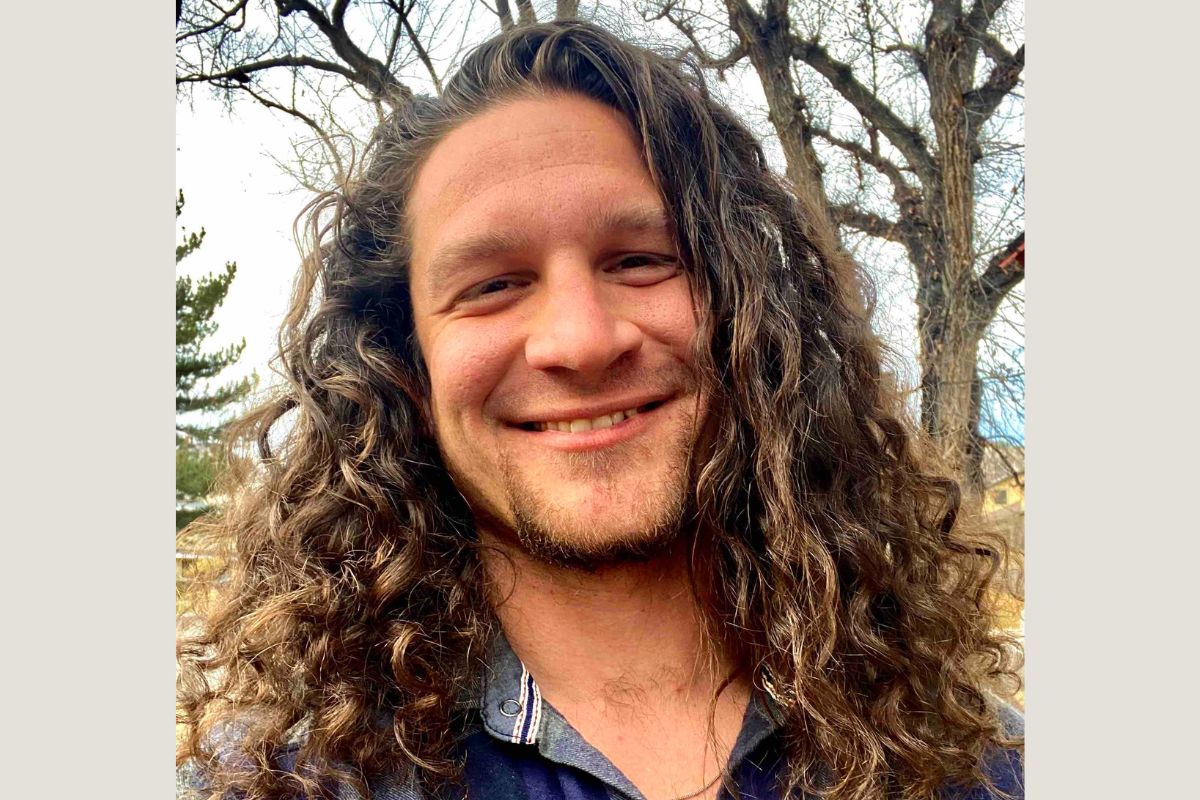

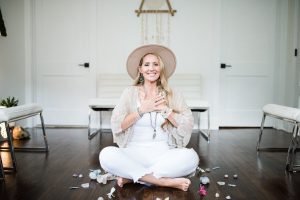

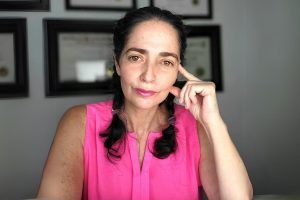

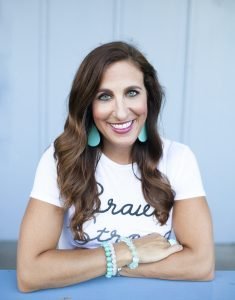

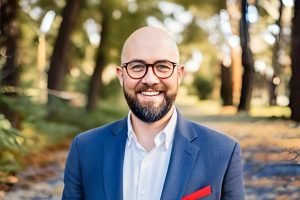
Be First to Comment